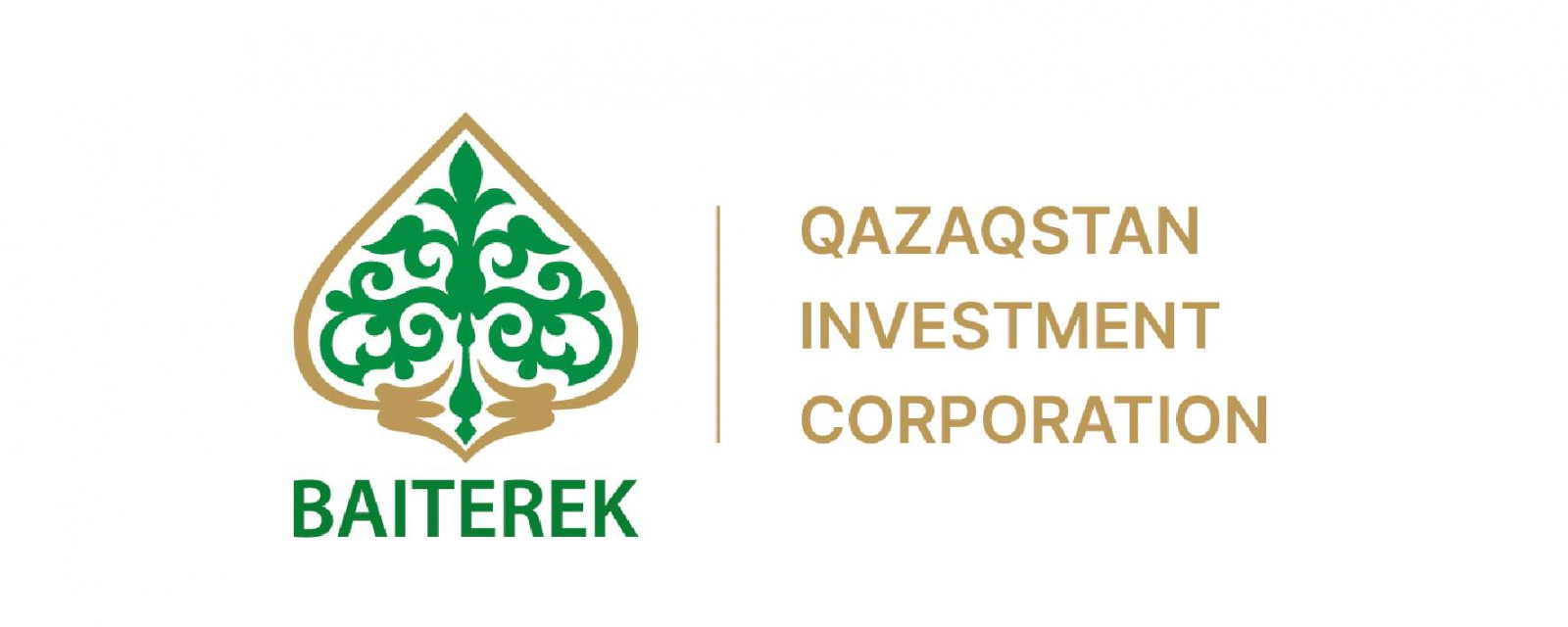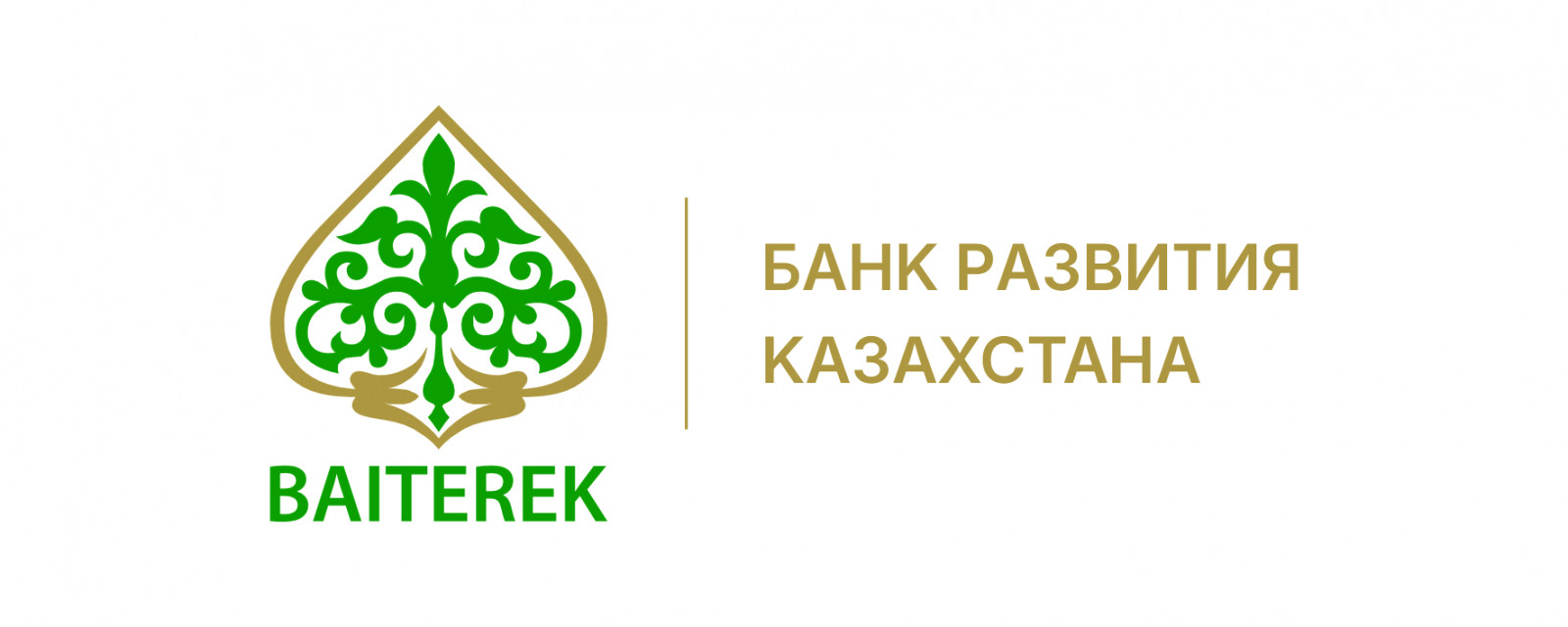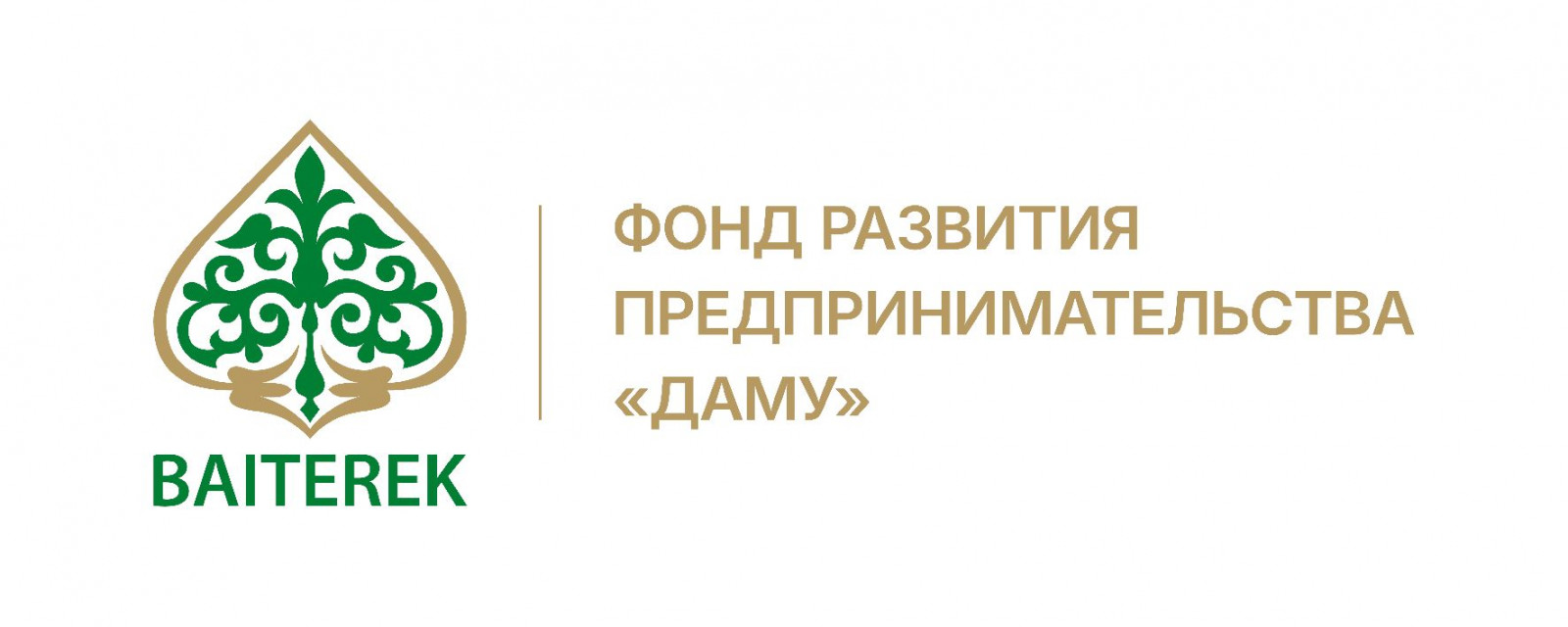Sustainable Management
As a socially responsible organization, "Export credit agency of Kazakhstan" JSC carries out its activities based on the principles of transparency and ethics, understanding that it has an impact on the economy, society and the environment to some extent. In its activities, "Export credit agency of Kazakhstan" JSC is guided by the principles of sustainable development and tries to achieve a balance between socio-economic and environmental development, as well as shares the UN Global Сompact principles. In 2019, "Export credit agency of Kazakhstan" JSC (hereinafter referred to as the Company) adopted the Sustainable Development Policy of "Export credit agency of Kazakhstan" JSC (Resolution of the Board of Directors No. 48 dated November 20, 2019). According to the Policy, the Company has set long-term targets for itself in certain areas and developed an Action Plan on implementation of this Sustainable Development Policy of the Company for 2020-2021 to integrate sustainable development issues into the Company's business processes.
The Company ensures that its economic, environmental and social goals are consistent with long-term sustainable development.
|
Economic Responsibility |
Social Responsibility |
Environmental Responsibility |
|
ensuring the interests of the Sole Shareholder |
ensuring transparent competitive procedures and equal employment opportunities |
minimization of impacts on biological and physical natural systems |
|
break-even of the Company's activities
|
fair remuneration and respect for employees' rights |
optimal use of limited resources |
|
improving the efficiency of processes |
training and professional development of employees |
using conservation technologies |
|
promotion of development of non-primary economy, including the growth in exports of non-primary industries and goods |
implementation of internal and external social programs |
|
|
Intolerance of Corruption |
|
|
Important tasks facing the Company and promoting its contribution to sustainable development are improvement of economic efficiency, increase in exports of non-primary goods, works and services, personnel development and ensuring stability in working conditions, maintaining a high level of safety, as well as achievement of effective interaction with stakeholders on a regular basis.
Achieving high economic and social results in the long term is possible only on the basis of respect for the interests of shareholders, the state, employees, suppliers and customers of the Company, financial institutions and other stakeholders.
Corporate Governance Code of JSC “Export Insurance Company KazakhExport”
Code of Business Ethics of JSC “Export Credit Agency of Kazakhstan”
Anti-Corruption Policy of JSC “Export Credit Agency of Kazakhstan”
Sustainability Policy of JSC “Export Credit Agency of Kazakhstan”
Human Rights Policy of JSC “Export Credit Agency of Kazakhstan”
Methodology for Calculating Greenhouse Gas Emissions of JSC “Export Credit Agency of Kazakhstan”
The ECA considers climate and environmental aspects as an integral part of a sustainable export strategy. As part of implementing the ESG approach and its commitment to the principles of the Net Zero Export Credit Agencies (NZECA), the agency is focused on strengthening the climate resilience of its export portfolio.
During the reporting period, the ECA’s portfolio did not include projects that fully met the criteria for “green” investments established by international taxonomies (including the EU Taxonomy and ICMA Green Bond Principles).
At the same time, taking into account international practice (in particular, the ICMA Climate Transition Finance Handbook and OECD Transition Finance Guidance), the ECA integrates into its strategic planning the assessment and support of transition projects aimed at:
-
reducing the carbon intensity of production processes;
-
improving energy efficiency;
-
modernizing assets in line with climate goals.
The ECA plans to develop and implement a methodology for determining the share of transition projects and may also establish an ESG filter for new export applications.
In 2025, it is planned to create an internal register of climate risks, as well as to launch a cross-functional mechanism for assessing transition initiatives.
The absence of green projects in the current portfolio reflects the industry-specific nature of export support. At the same time, the high share of carbon-intensive sectors may pose climate and transformation risks (including stricter regulations, access to international financing, and reputational risks).
To mitigate these risks, the ECA plans to:
-
identify transition and potentially green projects;
-
take climate aspects into account when underwriting new applications;
-
establish an ESG rating or indicative assessment scale for export projects.
As of the end of the reporting period:
-
Share of green projects in the ECA portfolio: 0% (according to current taxonomies);
-
Share of transition projects: under assessment (methodology in development);
-
Target for 2025–2027 — implementation of a monitoring system for the climate characteristics of the portfolio and annual disclosure of the share of projects contributing to emissions reduction and the transition to a low-carbon economy.
With the approval of the internal methodology for calculating greenhouse gas (GHG) emissions in 2024, full disclosure of emission data was carried out. For transparency and to create an analytical base, retrospective data for 2022, 2023, and 2024 has been provided.
Emission calculations were conducted in accordance with international practices and based on the following principles:
-
Use of emission factors from international sources (e.g., IPCC);
-
Calculation of emissions from business travel, considering round-trip distances and service class;
-
Scope 2 emissions calculated based on average national emission factors for electricity.
To improve the completeness and accuracy of data, the following steps are planned:
-
Gradual expansion of Scope 3 coverage, including other categories of indirect emissions;
-
Setting emission reduction targets aligned with national and international climate strategies.
Disclosure of emissions lays the foundation for developing a long-term climate strategy and an internal guide for managing environmental and social risks. The company reaffirms its commitment to the principles of sustainable development, continuous improvement in data quality, and alignment with the UN Sustainable Development Goal No. 13 – Climate Action.
Direct CO₂ Emissions – Scope 1 (GRI 305-1)
Given the absence of production processes and limited use of vehicles, direct emissions are minimal. Currently, quantitative accounting of Scope 1 is not conducted, as the emissions are not considered material in the context of operational activities. However, the implementation of a monitoring system is being considered if the scale or nature of operations changes.
Estimated emissions from company vehicles are based on mileage and calculated fuel consumption:
-
2023 – approximately 33.27 tonnes of CO₂
-
2024 – approximately 19.90 tonnes of CO₂
(No data available for 2022.)Indirect CO₂ Emissions – Scope 2 (GRI 305-2)
These emissions are associated with the consumption of electricity, heating, and water in leased office premises. Emissions were calculated proportionally to the share of the leased area in the total building size.
-
2022 – 34.72 tonnes of CO₂
-
2023 – 38.03 tonnes of CO₂
-
2024 – 41.04 tonnes of CO₂
The increase is due to higher resource consumption, expansion of office space, and the return to a full in-office work format after the pandemic. The building is equipped with energy-saving systems and resource-monitoring sensors, which help reduce environmental impact.
Other Indirect CO₂ Emissions – Scope 3 (GRI 305-3)
Scope 3 includes emissions from business travel. This category is relevant given the company’s active participation in industry events and partnerships.
Calculations were based on the number of trips, round-trip flight distances, and service classes, using international emission factors:
-
2022 – 5,008.71 kg of CO₂
-
2023 – 10,618.00 kg of CO₂
-
2024 – 34,709.50 kg of CO₂
Reasons for the increase:
-
In 2022, travel remained limited due to post-pandemic constraints and budget restrictions;
-
In 2023, trips resumed, including international travel;
-
In 2024, there was a peak in activity due to increased external engagement and participation in international forums and negotiations.
The company plans to further expand Scope 3 to include other indirect emission sources, such as contractor transportation and procurement of goods and services, as the reporting system develops.
GHG Emissions from Projects Supported by ECA
Currently, emission calculations are being prepared for projects supported by the Export Credit Agency of Kazakhstan (ECA). This includes financed activities in key sectors of the national economy such as metallurgy, food production, chemicals, and machinery – the core of the Agency’s export portfolio.
The methodology is based on leading international standards, including:
-
GHG Protocol (Greenhouse Gas Protocol),
-
PCAF (Partnership for Carbon Accounting Financials),
-
IFRS S2 (International Sustainability Standards Board),
-
TCFD (Task Force on Climate-related Financial Disclosures).
Special attention is given to Scope 3 emissions from financed projects (financed emissions) and the use of sector-specific emission factors adapted to the context of Kazakhstan and the region.
These calculations will help ECA more accurately assess climate-related risks in its portfolio, define decarbonization priorities, and integrate climate criteria into the decision-making process for export support – in line with best international practices and Kazakhstan’s commitments under the Paris Agreement.
With the adoption of the internal methodology for calculating greenhouse gas emissions in 2024, full disclosure of emission data has been carried out. For the purposes of transparency and the creation of an analytical base, retrospective data for 2022, 2023, and 2024 have been provided.
Greenhouse gas (GHG) emission calculations were performed in accordance with international practices and based on the following principles:
- use of emission factors from international sources (IPCC);
- calculation of emissions from business travel, taking into account flight distances (round-trip) and travel class;
- Scope 2 calculation based on average national electricity emission factors.
To enhance the completeness and accuracy of the data, the following measures are planned:
- phased expansion of Scope 3 coverage, including other types of indirect emissions;
- establishment of GHG emission reduction targets in line with national and international climate strategies.
The disclosure of emission information lays the foundation for the development of a long-term climate strategy, as well as an internal framework for managing environmental and social risks. The company reaffirms its commitment to the principles of sustainable development, continuous improvement in data quality, and alignment with the United Nations Sustainable Development Goal No. 13 — “Climate Action”.
Direct CO2 Emissions (Scope 1)
GRI 305-1
Given the absence of production processes and the limited use of vehicles, the volume of direct emissions is insignificant. Currently, quantitative accounting of Scope 1 emissions is not conducted, as these emissions are not deemed material in the context of operational activities. However, the possibility of implementing a monitoring system is being considered in the event of changes in the scale or nature of operations.
The estimation of CO₂ emissions from company vehicles is based on mileage and calculated fuel consumption.
- In 2023, emissions amounted to approximately 33.27 tonnes of CO₂,
- In 2024 — around 19.90 tonnes of CO₂,
- Data for 2022 are unavailable.
Indirect CO2 Emissions (Scope 2)
GRI 305-2
Indirect emissions are associated with the consumption of electricity and thermal energy in leased office premises. The volume of emissions is determined proportionally to the leased area relative to the total building area.
The calculations cover electricity, thermal energy, and water consumption.
- In 2022, total emissions amounted to 34.72 tonnes of CO₂,
- In 2023 — 38.03 tonnes of CO₂,
- In 2024 — 41.04 tonnes of CO₂.
The main factors contributing to the increase were higher resource consumption, expanded leased office space, and the transition to a full in-office work format following the pandemic. The building is equipped with energy-saving systems and resource monitoring sensors, which help reduce the environmental impact.
Other Indirect CO2 Emissions (Scope 3)
GRI 305-3
Within the Scope 3 category, emissions associated with business travel have been considered. This type of emission is recognized as relevant for the Company, given its regular business activity, participation in industry events, and engagement with partners.
Calculations were made based on the number of trips, flight distances (round-trip), and travel classes, using international emission factors. A significant increase in emissions in this category was observed during 2022–2024:
- 2022 — 5,008.71 kg of CO₂
- 2023 — 10,618.00 kg of CO₂
- 2024 — 34,709.50 kg of CO₂
Reasons for the increase include:
- In 2022, business travel remained limited due to the lingering effects of the pandemic and budget constraints;
- In 2023, travel activities resumed, including international trips;
- In 2024, a peak in activity was recorded, driven by the expansion of external engagement, participation in international forums, and negotiations with foreign partners.
The Company plans to further expand the Scope 3 coverage to include other sources of indirect emissions (e.g., contractor transportation, goods and services consumption) as the accounting system develops and improves.
Preparations are currently underway to calculate greenhouse gas emissions associated with the supported projects of JSC "Export Credit Agency of Kazakhstan." This work covers financed activities in key sectors of the national economy, including metallurgy, food processing, chemical industry, and mechanical engineering, which constitute the core of the Agency’s export portfolio.
The methodological framework for the calculations is being developed in line with leading international practices, including:
the GHG Protocol (Greenhouse Gas Protocol),
PCAF (Partnership for Carbon Accounting Financials),
IFRS S2 (standards of the International Sustainability Standards Board),
as well as recommendations from the TCFD (Task Force on Climate-related Financial Disclosures).
Special attention is being paid to the assessment of Scope 3 emissions related to financed projects (financed emissions), as well as the application of sector-specific emission factors adapted to the conditions of Kazakhstan and the broader region.
The results of these calculations are expected to enable the ECA to more accurately assess climate-related risks within its portfolio, determine decarbonization priorities, and integrate climate criteria into the decision-making process for providing export support to clients in accordance with best international practices and the commitments of the Republic of Kazakhstan under the Paris Agreement.
Since 2017, the Company has been a member of the UN Global Compact, the broadest international initiative in the field of social responsibility, which unites more than 12 thousand companies from more than 160 countries. The Global Compact declares ten principles in the area of human rights, labor relations, environmental protection and the fight against corruption, which its participants voluntarily adhere to. The Global Compact calls on participants to support the UN sustainable development goals aimed at improving the well-being of present and future generations.
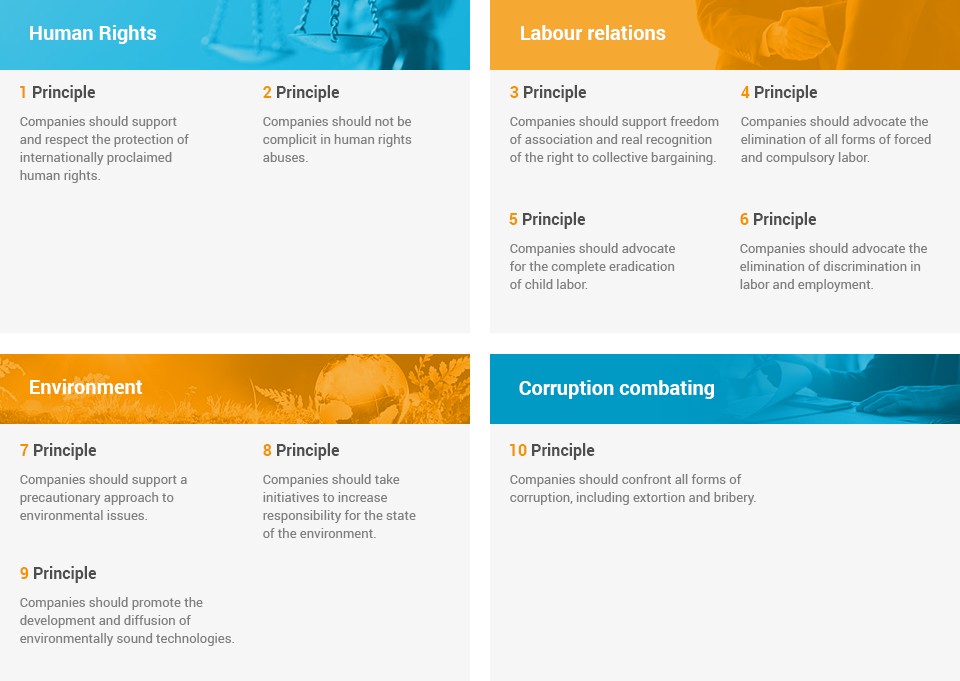
One of the Company's‑ core values is responsible business conduct. The Сompany adheres to and shares the principles of international declarations on human rights, labor relations, anti-corruption, and environmental protection, including the OECD Guidelines for Multinational Enterprises.
The principles of these international documents are enshrined in the Company's internal regulatory documents and integrated into the Company's business processes.
The main thing that determines the success of each company is its employees. The reputation, authority, successful and sustainable development of the company depend on each of us. The Company pays great attention to providing a favorable psychological climate and creating conditions for realizing the potential of each employee. The Company has a Code of Business Ethics (hereinafter referred to as the Code) developed in accordance with the best international practices.
The Code is one of the most important tools of corporate culture. Corporate values and guidelines set out in the Code require every employee to be consciously active and proactive. Adherence of all employees to the same principles and standards of behavior contributes to the formation of a reliable and highly professional team united by common goals, culture of behavior and traditions, and also helps to maintain a proper level of mutual understanding both within the company and with business partners and clients.
Working in the Company provides for strict compliance by all employees with legal, ethical and professional norms and standards that meet the requirements of the state, the market and society, and form the basis of the term "compliance". The Сompany adheres to the principle of non-acceptance of corruption in all forms and corruption manifestations in the implementation of both operational and other types of activities.
Interaction with stakeholders is one of the components in the business process organization system. The Company strives to form partnership, long-term, fruitful, trusting and mutually beneficial relationships with stakeholders – shareholders, employees, suppliers and customers, as well as public authorities.
The Company builds its relationships with stakeholders based on the principle of social responsibility of business. The projects supported by the Company give a new impetus to the development of domestic enterprises and contribute to increasing the export of domestic goods, works and services.
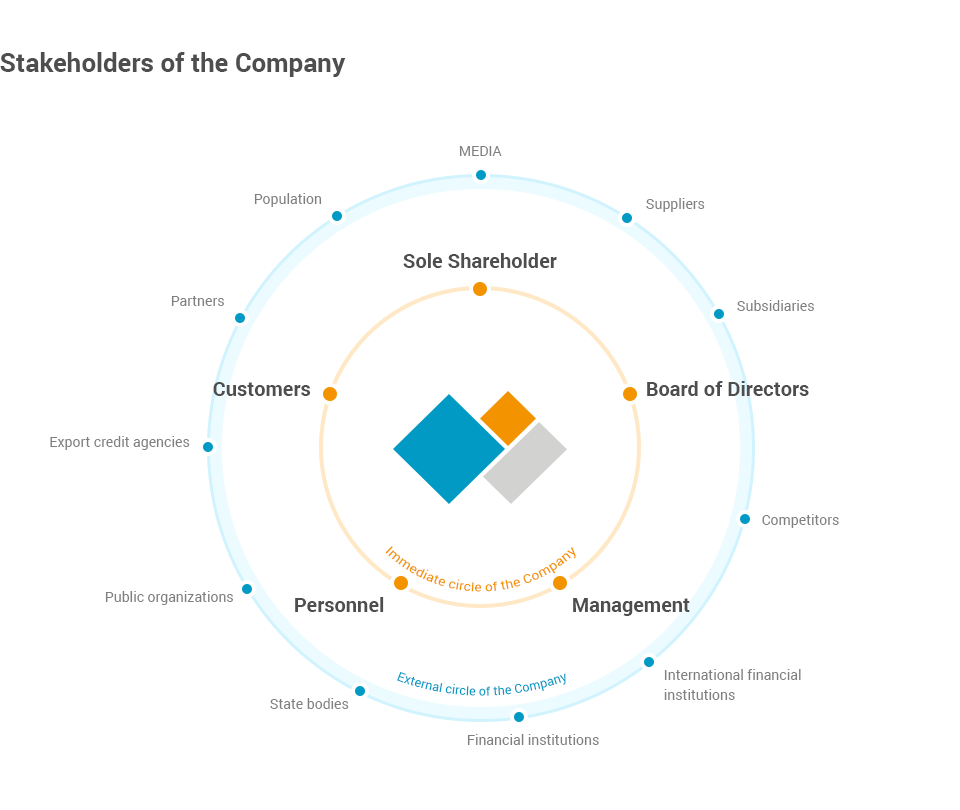
Building trust relationships with stakeholders is done by providing transparent reporting. The Сompany strives for long-term mutually beneficial cooperation and tries to take into account all the interests and expectations of all stakeholders.
Given the diversity of our stakeholders, the Company has various mechanisms for interacting with all of them, whether they are individuals or large organizations.
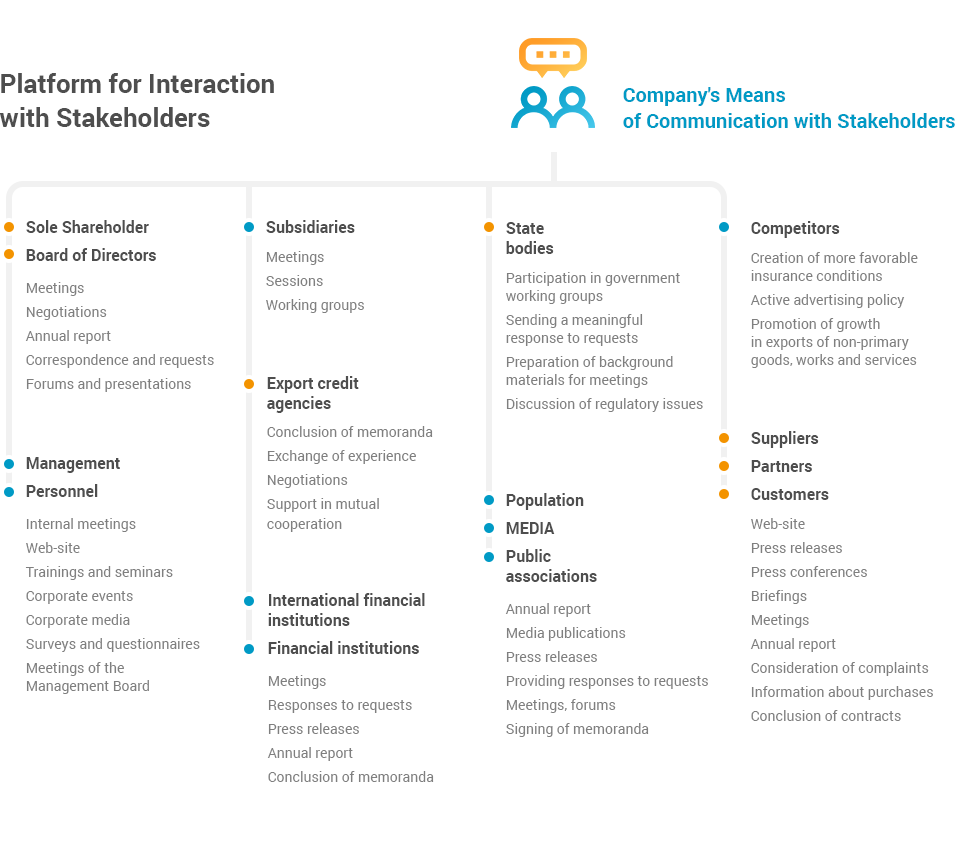
The Company is a socially responsible company; being aware of our responsibility to all stakeholders, we pursue a socially oriented policy in environmental protection, regulation of labor and employment issues.
The Company operates in strict accordance with Kazakhstan legislation.
The principles of fundamental international documents in the area of human rights are enshrined in the Code of Business Ethics of EIC "KazakhExport" JSC, internal regulatory documents of the Company, and are integrated into corporate business processes.
The Company expects all its partners, suppliers and customers to recognize fundamental human rights and freedoms and to follow these fundamental principles of human rights in their activities.
The Company has all necessary procedures in place to respond promptly to complaints and claims in the area of human rights.
The main asset of the Company is highly professional personnel, motivated to work effectively.
Success in professional activity and teamwork of each of the Company's employees depends on the amount of knowledge and skills they possess. The Company provides its employees with opportunities for continuous improvement of their abilities and skills. A key aspect of the personnel training and development policy is the internal growth and professional development strategy.
During the quarantine period, a distance learning system is actively used, which contains a large number of corporate courses and multimedia manuals, providing quick and convenient access to knowledge for employees.
Corporate culture is an important link in the Company's activities, an integral component of the Company's successful development strategy. It is based on the main guidelines and values that the Company adheres to when interacting with personnel, partners and customers.
Among the key initiatives in corporate culture of the Company, the following areas can be listed:
- Business Ethics
- Internal communications and personnel involvement analysis
- Corporate events
Internal communication or personnel involvement is an integral part of the Company's corporate culture and one of the main factors for improving performance. Today, the Company focuses on timely informing personnel about key changes, projects and events taking place in the Company, supporting cooperation and sharing knowledge between departments.
In order to correctly determine the direction of further development of the corporate culture and internal communications system, the Company regularly conducts sociological research. Research allows to assess the level of awareness and satisfaction of employees with personnel and social programs, identify areas of potential and existing risks, and make recommendations for the development of personnel and social policies of the Company.
The Company's line of business does not belong to the category that has a negative impact on the environment. The Company strives to use natural resources efficiently, thereby setting an example to all stakeholders.
The climate agenda evolves annually, and proposals for regulating and accounting for greenhouse gas emissions continually emerge.
Greenhouse gas (GHG) accounting, which measures the emissions of companies and other entities, was introduced in the late 1990s. However, interest in this field has surged in recent years due to the rise of both voluntary and mandatory corporate climate disclosure initiatives.
GHG disclosure is essential for climate mitigation and accountability. It plays a key role in achieving ambitious emission reduction targets. To prevent the worst effects of climate change, global greenhouse gas emissions need to be halved by 2030, with the ultimate goal of reaching net zero. Reducing emissions starts with accurate greenhouse gas accounting.
GHG accounting, also referred to as carbon accounting, relies on standardized methods and follows agreed-upon protocols. These methods enable companies, governments, and individuals to measure emissions from their direct operations as well as indirectly through their supply chains and customer bases.
Corporate GHG accounting is crucial, as businesses are major contributors to greenhouse gas emissions. Accurate carbon reporting by companies has become one of the most critical forms of reporting, influencing their investment appeal.
Background information:
The GHG Protocol (Greenhouse Gas Protocol) is a set of industry standards and tools designed for greenhouse gas (GHG) accounting. It is an international framework used to understand, quantify, and manage GHG emissions.
According to the Protocol, a company's emissions are divided into direct and indirect emissions, which are further categorized into three scopes: Scope 1, Scope 2, and Scope 3.
This classification system is typically adopted by large corporations that provide products or services to global markets.
What types of emissions must companies measure and disclose?
To fully understand their climate impact, companies need to measure emissions not only from their own operations but also from the raw materials they purchase and the emissions produced during the use of their products. A comprehensive emissions footprint is assessed across three scopes:
Scope 1: Direct emissions from sources that a company owns or controls. These typically occur on-site, such as emissions from burning diesel in trucks or coal in power plants.
Scope 2: Indirect emissions from the consumption of purchased electricity, steam, heating, or cooling. For instance, a company’s Scope 2 emissions from using coal would be the Scope 1 emissions of the company that produced that coal.
Scope 3: All other indirect emissions from a company's upstream and downstream activities. These include emissions from the entire value chain, which are outside the company's direct control. For example, the emissions produced when a customer charges their mobile phone are part of the phone manufacturer’s Scope 3 emissions. Similarly, the emissions from the production of the raw materials used to make the phone are also Scope 3 for the phone manufacturer.
Why are greenhouse gas accounting and corporate climate disclosures important?
Using standardized methods for measuring and reporting emissions allows companies to identify areas where they can reduce their carbon footprint, supporting global efforts to lower emissions. Greenhouse gas accounting also helps companies assess emissions-related risks and opportunities throughout their value chain, engage partners in emissions management, and participate in carbon markets.
Accurate and transparent GHG accounting builds trust among stakeholders and investors, showcasing a company’s commitment to sustainability and strengthening confidence in its future prospects. These standards form the foundation for both voluntary and mandatory corporate emissions disclosures, as well as for setting ambitious emissions reduction targets.
What’s next for global corporate greenhouse gas accounting?
Starting in 2025, large publicly listed European companies will be required to publish sustainability statements following the European Sustainability Reporting Standards. Small and medium-sized enterprises (SMEs) will need to comply by 2026.
With the approval of the internal methodology for calculating greenhouse gas (GHG) emissions in 2024, full disclosure of emission data was carried out. For transparency and to create an analytical base, retrospective data for 2022, 2023, and 2024 has been provided.
Emission calculations were conducted in accordance with international practices and based on the following principles:
-
Use of emission factors from international sources (e.g., IPCC);
-
Calculation of emissions from business travel, considering round-trip distances and service class;
-
Scope 2 emissions calculated based on average national emission factors for electricity.
To improve the completeness and accuracy of data, the following steps are planned:
-
Gradual expansion of Scope 3 coverage, including other categories of indirect emissions;
-
Setting emission reduction targets aligned with national and international climate strategies.
Disclosure of emissions lays the foundation for developing a long-term climate strategy and an internal guide for managing environmental and social risks. The company reaffirms its commitment to the principles of sustainable development, continuous improvement in data quality, and alignment with the UN Sustainable Development Goal No. 13 – Climate Action.
Direct CO₂ Emissions – Scope 1 (GRI 305-1)
Given the absence of production processes and limited use of vehicles, direct emissions are minimal. Currently, quantitative accounting of Scope 1 is not conducted, as the emissions are not considered material in the context of operational activities. However, the implementation of a monitoring system is being considered if the scale or nature of operations changes.
Estimated emissions from company vehicles are based on mileage and calculated fuel consumption:
-
2023 – approximately 33.27 tonnes of CO₂
-
2024 – approximately 19.90 tonnes of CO₂
(No data available for 2022.)Indirect CO₂ Emissions – Scope 2 (GRI 305-2)
These emissions are associated with the consumption of electricity, heating, and water in leased office premises. Emissions were calculated proportionally to the share of the leased area in the total building size.
-
2022 – 34.72 tonnes of CO₂
-
2023 – 38.03 tonnes of CO₂
-
2024 – 41.04 tonnes of CO₂
The increase is due to higher resource consumption, expansion of office space, and the return to a full in-office work format after the pandemic. The building is equipped with energy-saving systems and resource-monitoring sensors, which help reduce environmental impact.
Other Indirect CO₂ Emissions – Scope 3 (GRI 305-3)
Scope 3 includes emissions from business travel. This category is relevant given the company’s active participation in industry events and partnerships.
Calculations were based on the number of trips, round-trip flight distances, and service classes, using international emission factors:
-
2022 – 5,008.71 kg of CO₂
-
2023 – 10,618.00 kg of CO₂
-
2024 – 34,709.50 kg of CO₂
Reasons for the increase:
-
In 2022, travel remained limited due to post-pandemic constraints and budget restrictions;
-
In 2023, trips resumed, including international travel;
-
In 2024, there was a peak in activity due to increased external engagement and participation in international forums and negotiations.
The company plans to further expand Scope 3 to include other indirect emission sources, such as contractor transportation and procurement of goods and services, as the reporting system develops.
GHG Emissions from Projects Supported by ECA
Currently, emission calculations are being prepared for projects supported by the Export Credit Agency of Kazakhstan (ECA). This includes financed activities in key sectors of the national economy such as metallurgy, food production, chemicals, and machinery – the core of the Agency’s export portfolio.
The methodology is based on leading international standards, including:
-
GHG Protocol (Greenhouse Gas Protocol),
-
PCAF (Partnership for Carbon Accounting Financials),
-
IFRS S2 (International Sustainability Standards Board),
-
TCFD (Task Force on Climate-related Financial Disclosures).
Special attention is given to Scope 3 emissions from financed projects (financed emissions) and the use of sector-specific emission factors adapted to the context of Kazakhstan and the region.
These calculations will help ECA more accurately assess climate-related risks in its portfolio, define decarbonization priorities, and integrate climate criteria into the decision-making process for export support – in line with best international practices and Kazakhstan’s commitments under the Paris Agreement.

